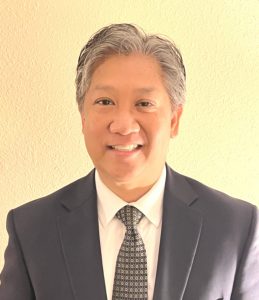
Dr. Eric Smaw, professor of philosophy, sits on a desk at the front of his brimming classroom, leading a discussion on Adolf Hitler in his class titled, “Zombies, Serial Killers, and Madmen.”
In the past month, the course has received statewide and national recognition from sources such as National Public Radio (NPR) for its unique subject material and interdisciplinary approach.
The topics covered in the class are applicable to conversations about Halloween, which led to the spike in interest from the media. In October, Smaw spoke with ABC 7 News, Fox 35, and the Miami Herald about “Zombies, Serial Killers, and Madmen,” and had a segment on NPR’s Weekend Edition broadcast.
Smaw was unsure about how the media found out about his course.
Smaw named the interview with NPR’s Lulu Garcia-Navarro as his proudest media recognition, especially because references to NPR’s coverage of current events are near-daily occurrences in his classroom.
This course has attracted not only the attention of state and national media outlets, but of students as well. In his interview with the Miami Herald, Smaw said that the registrar’s office at Rollins reported the course as one of the most popular on campus. Students are intrigued by the topics because of a fascination with the grotesque behavior of other human beings, a personal fear that they want to understand, or an interest in the treatment of murderers in the criminal justice system. Other students are influenced to take the class because of an overarching interest in the subject material.
Smaw uses a true liberal arts approach to address the issues of murder, criminal justice, and abuse of power as it relates to the human condition. He uses neurological, sociological, political, and philosophical perspectives to examine zombies, serial killers, and madmen not as fictional monsters, but as real characters that exist in modern day society.
He created the class as he studied human consciousness and its implications in today’s society.
At this point in the semester, students began their discussion of madmen. Smaw defined a madman as “a political demagogue who is looking to consolidate power to become a dictator.” His prime examples of madmen were Hitler and the Nazi party of Germany.
A strict “no euphemism” rule is enforced in his classroom, especially in class discussions of Hitler and the atrocities he committed during the Holocaust.
“Students often want to use polite language to talk about the most grotesque things that happen in our society, but in order to get them to understand what can happen when a madman rises to power, it is important that they don’t use euphemisms to color what is grotesque behavior by politicians,” Smaw said.
This portion of the course focuses especially on deconstructing students’ senses of American exceptionalism. Smaw believed that this ideology is damaging to students because it forces them to look overseas for examples of genocide or megalomania. He pointed out that the genocide of Native Americans and the Transatlantic Slave Trade both occurred under American supervision.
“America is not special, and the citizens of the state and the state itself are subject to all of the evils of humanity,” Smaw said. The course looks forward into what could happen if Americans are not diligent in their application of the principles of democracy and the rule of law.
The course is taught in three sections, starting on the topic of zombies and ending with the discussion of madmen. Students taking the course often expect to engage in discussion about the zombies they know from popular culture, so Smaw started the course with a discussion of the well-known figures of the zombie archetype, then introduced the existence of neurological zombies to his students.
“Zombies are real entities that have to do with human neurology, and zombies can engage in complex behaviors like murder, and our criminal justice system has to decide what to do with people who suffer from diminished capacities and commit murder,” Smaw explained.
Diminished capacity refers to an unbalanced state of mind in which one is not capable of fully comprehending their crime at the time it was committed.
This is where he says serial killers differ from zombies. Serial killers are fully aware of what they are doing, with brain energy reaching or exceeding the threshold of consciousness.
Serial killers were discussed first in relation to fictional characters, such as Frankenstein, vampires, and other serial killers. Smaw drew parallels between the serial methods of these famous characters and real-world serial killers.
In addition, lores surrounding people like the Night Killer and Jack The Ripper were examined in relation to real incidents that occur. Personality types of serial killers were then examined from those stories, ending in a discussion about the American criminal justice system’s treatment of the sociopathic.
Smaw encouraged students who wish to explore the complexities of these topics to register up for “Zombies, Serial Killers, and Madmen” when it is next offered. Beware, this course is not for the faint of heart or stomach.














Be First to Comment